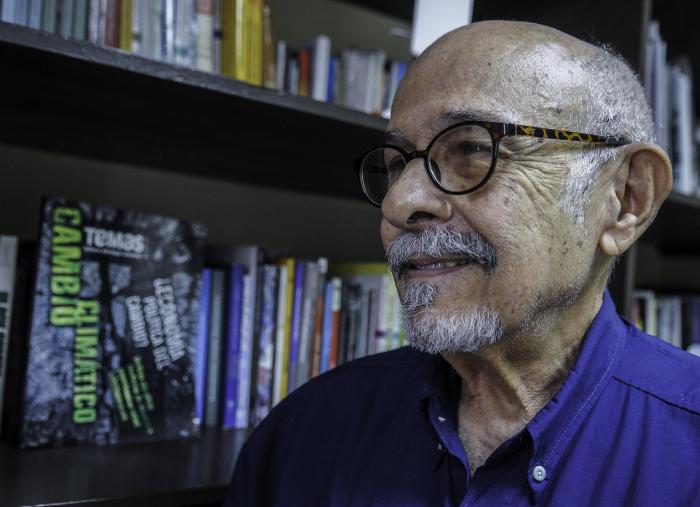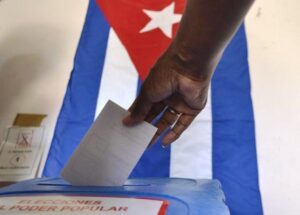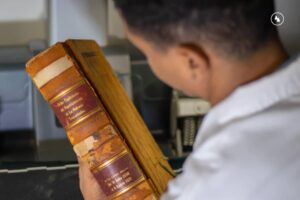The outstanding intellectual was awarded the National Cultural Research Award 2023.
Dr. Rafael Hernández Rodríguez was always motivated to discover what was beyond the visible. He was passionate about knowledge and imagined himself in a chemistry laboratory, unraveling the mystery of life. It was life itself and its twists and turns that turned him into a researcher, but of the Social Sciences: he is a political scientist, professor, writer, author of books and essays on Cuba, the United States, society, culture and history, director of Temas magazine, among other tasks he has developed in his extensive career.
The work of this outstanding Cuban intellectual was recognized with the National Cultural Research Award for Life’s Work, granted by the Ministry of Culture. «I was fortunate because the jury, made up of distinguished Cuban intellectuals, judged my work in the field of political science, sociology, Cuba-US relations and history. I thank them for that broad vision of what culture is,» he commented in an interview granted to Granma.
Hernández Rodríguez did not set out to be a researcher, but «that profession chose me. I learned that society and power, relations between social groups, political culture, philosophical thought, art and literature of an era, ideologies, are intertwined; and that those links, their factors and causes, are not so obvious, rather they are hidden, buried under common sense, which does not let us see them, so they must be investigated».
-What does Cuban culture represent for you?
-Culture is a process in full development. It is a contradictory inheritance, which combusts very diverse and sometimes irreconcilable elements; a chain of things and ideas that connects us, in spite of all our differences; an accumulation of representations about ourselves; a set of visions and associations, of attitudes and feelings, some positive and others not so much; it is the vehicle that relates us and allows us to interact with the rest of the world, to which we also belong and which we appropriate every day.
-How do you think artists and writers can contribute to the development of Cuban society today?
-By doing what they have always done: being there, defending their ideas, committing themselves to the society in which they live, freeing themselves from the narrow guildism that some have, escaping from the temptations of the market and easy success, from the seduction of the media and the vagaries of social networks, from superficiality and low handles.
«They must understand that culture is not limited to art and literature, nor to an institutional sector. A writer or an artist can be an agent of social change, but doing so from that condition requires taking charge, not only of his means of expression, but of his connections with that society, which he does not always know, and which he often confuses with his troop of friends. It is necessary to earn the respect of the people with dedication».
-Any recommendations for young researchers?
-Don’t let yourselves be trapped in the limits of one discipline. They should learn everything that can help them understand the multiple facets of real-world phenomena, which can never be reduced to those of a separate science.
In his fruitful career as a researcher he has invested «time in exciting things, intellectually and politically, such as founding and promoting American studies from the Center for American Studies (CEA) and sustaining, against all odds, the journal Temas». However, his main dissatisfaction is not having dedicated more time to finish some projects, and he wishes he could write what he considers he lacks.
Within his research he has devoted special attention to the relations between Cuba and the United States. The origins of this interest go back to his grandmother, the first one who told him about José Martí. Reading the texts of the National Hero, «I realized that he knew as much about the U.S. as he did about Cuba, and that his cultural, civic and political legacy was inseparable from that relationship and his testimony about the U.S. So I began to study the U.S. to better understand the history, culture, society and politics of Cuba.
«For 40 years I have had the opportunity to teach and do research in universities in the U.S. So I have learned, here and there, that what unites us is much more than what separates us, and if they let us, we can get along better with each other than with others.




